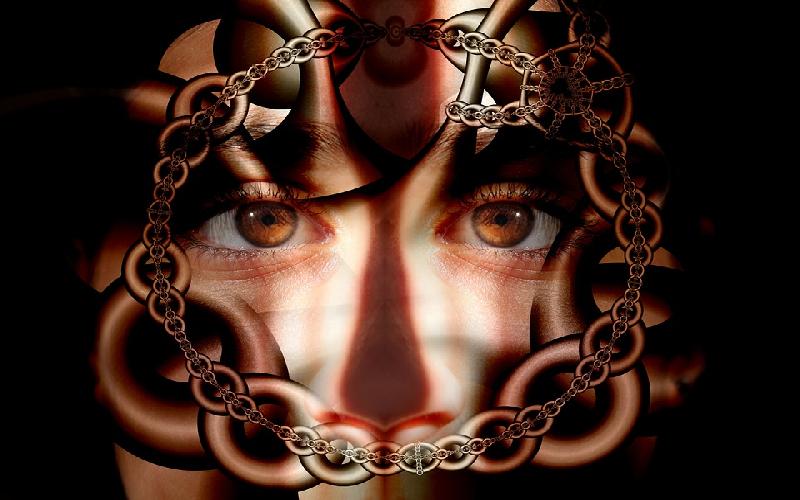Borderline personality disorder and what it's like to not be able to control your emotions


Borderline personality disorder (BPD) is a severe mental disease. In this article you can find information about BPD symptoms, treatments and therapies.
There are many mental conditions and each one of them impact one's daily life. While some are relatively easy to cope with, others lead to seriously troubled everyday functioning. One of the most serious is the Borderline Personality Disorder (BPD). Let's take a look at the symptoms. People suffering from BPD may experience:
Mood instability; behavior and self-image instability; intense and unstable relationships (varying from extreme closeness to extreme anger or dislike); impulsive and dangerous behavior; suicidal behavior; feeling of emptiness; problems with controlling the anger; intense changeable moods; paranoid thoughts; severe dissociative symptoms (losing touch with the reality).
Patients with BPD tend to overthink and cannot easily distinguish which issues are real and which imaginary. Also, their mood changes suddenly and their emotions are hard to regulate.
Borderline personality disorder causes disability, even when controlled. Conditions like depression, anxiety, substance abuse, eating disorders and other personality disorders can also exist together with BPD.
There is not an agreement on the causes of BPD, but most experts agree that the causes are environmental or genetic factors.
If a person has a close family member who suffers from the disorder, then he is five times more likely to have BPD, too. It was estimated that BPD is the third most-heritable personality disorders among ten reviewed.
Neurological studies have found structural and functional changes in the brain of people with borderline personality disorder. There have been reductions in these brain regions where stress responses and emotion are being regulated. The hippocampus, the amygdala and the orbitofrontal cortex have also been affected. There is still need for more research.
Environmental and social factors also might play a role in developing BPD, such as traumatic events - abuse or abandonment, hostile conflicts or unstable relationships.
Women are 75% of all people with BPD, that makes three women to one man diagnosed with borderline personality disorder. Around 70% of those who suffer from BPD will try to commit suicide at least once; 8-10% will succeed.
BPD is not easy to treat, but many people with this condition can have improved quality of life with proper treatment. If you have BPD, remember, you CAN recover.
The main therapy so far is psychotherapy, which teaches people how to interact effectively with others. There are several types of psychotherapy used in BPD treatment:
Medications are not the primary treatment because there are no clear benefits. Specific medications might be used to treat some of the symptoms (mood swings, depression and other disorders that occur together with BPD).
If you have BPD, you can help yourself by: setting realistic goals for yourself; maintaining a stable schedule of eating and sleeping; sticking with your treatment; spending time with trusted friends or family members; being patient about your improvement; exercising for stress reduce; educating yourself about BPD and NOT using alcohol or illicit drugs - they will DEFINITELY make things worse.
If your loved one has BPD, you might feel unsure how to act around them in order not to upset them. Educate yourself about the disease, so you will be able to understand your family member or friend who has BPD. Seek help from professionals, support their treatment, try to stay calm (although it may be hard to do so) and do NOT forget to take care of yourself, too. If you want, you may join a Family Support organization to learn how to help your loved one and yourself to cope with the disease.
For more information about BPD check http://www.borderlinepersonalitydisorder.com/.
Sources:
https://www.verywell.com/bpd-and-misdiagnosis-425176
http://elitedaily.com/life/borderline-personality/1097477/
https://en.wikipedia.org/wiki/Borderline_personality_disorder#Cognitions
https://www.nimh.nih.gov/health/topics/borderline-personality-disorder/index.shtml
After writing the review of both Ponds BB cream and Garnier BB cream, it is time to put both BB creams against each other. Let us learn the few characteristics of both creams before getting down to their comparison and then find out which one is better as per usage on my skin.
Relation between ginger and weight loss is not new. Ayurveda has special mention about ginger weight loss benefits.
From curing wrinkles to whitening skin tone, castor oil finds lot of uses for face and skin. It has anti bacterial properties which heal your skin and fight all sorts of skin inflammations.